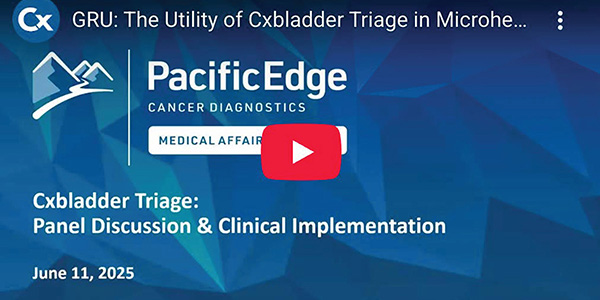The Utility of Cxbladder Triage in Microhematuria Evaluation: Expert Discussion
A panel of urology experts examines the role of Cxbladder Triage in the diagnostic pathway for patients with microhematuria, highlighting evidence, clinical application, and guideline alignment.
Read More


